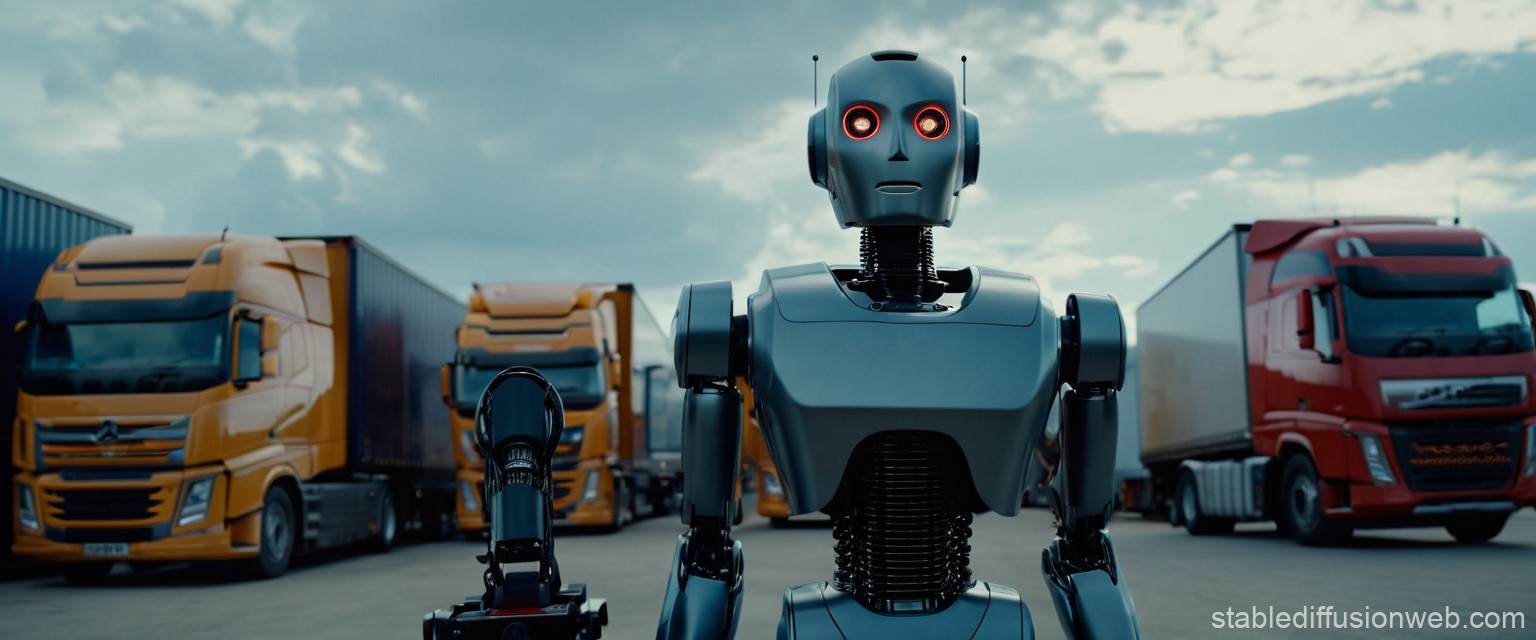The freight industry is the backbone of global trade, ensuring that goods move seamlessly across borders, oceans, and continents. However, this complex ecosystem faces numerous challenges, including rising costs, inefficiencies, and environmental concerns. Enter Artificial Intelligence (AI)—a game-changing technology that is reshaping the logistics landscape. From optimizing routes to enhancing supply chain visibility, AI is unlocking new possibilities for the freight industry. In this blog post, we’ll explore some of the most exciting AI applications that are driving innovation and efficiency in freight and logistics.
1. Route Optimization and Predictive Analytics
One of the most significant challenges in freight transportation is finding the most efficient routes. AI-powered algorithms analyze vast amounts of data, including traffic patterns, weather conditions, and historical delivery times, to optimize routes in real time. This not only reduces fuel consumption and delivery times but also minimizes wear and tear on vehicles.
Predictive analytics takes this a step further by forecasting potential disruptions, such as road closures or extreme weather events. By anticipating these challenges, freight companies can proactively adjust their plans, ensuring timely deliveries and reducing costs.
2. Autonomous Vehicles and Drones
Autonomous trucks and drones are no longer science fiction—they’re becoming a reality in the freight industry. AI-driven self-driving trucks are being tested for long-haul deliveries, offering the potential to reduce labor costs and improve safety by minimizing human error. Similarly, drones are being used for last-mile deliveries, especially in remote or hard-to-reach areas.
These technologies are still in their early stages, but they hold immense promise for revolutionizing freight transportation, particularly in reducing delivery times and operational costs.
3. Warehouse Automation
AI is transforming warehouses into highly efficient hubs of activity. Smart robots equipped with AI algorithms can sort, pack, and move goods with incredible precision and speed. Machine learning systems can also predict inventory needs, ensuring that warehouses are stocked with the right products at the right time.
By automating repetitive tasks, AI allows human workers to focus on more complex and strategic activities, boosting overall productivity and reducing errors.
4. Enhanced Supply Chain Visibility
In the freight industry, visibility is key. AI-powered platforms provide real-time tracking of shipments, enabling companies to monitor the location and condition of goods throughout the supply chain. This level of transparency helps businesses make informed decisions, improve customer satisfaction, and reduce the risk of lost or damaged goods.
Blockchain technology, often integrated with AI, further enhances supply chain visibility by creating an immutable record of transactions and movements. This combination ensures greater accountability and trust among stakeholders.
5. Demand Forecasting and Inventory Management
Accurate demand forecasting is critical for optimizing inventory levels and reducing waste. AI algorithms analyze historical sales data, market trends, and external factors (such as economic conditions or seasonal fluctuations) to predict future demand with remarkable accuracy.
By aligning inventory with anticipated demand, freight companies can reduce storage costs, minimize stockouts, and improve overall efficiency.
6. Sustainability and Carbon Footprint Reduction
The freight industry is under increasing pressure to reduce its environmental impact. AI is playing a crucial role in helping companies achieve their sustainability goals. For example, AI can optimize fuel efficiency by analyzing driving patterns and recommending adjustments. It can also identify opportunities to consolidate shipments, reducing the number of trips required.
Additionally, AI-powered tools can help companies measure and track their carbon emissions, enabling them to implement more eco-friendly practices.
7. Fraud Detection and Risk Management
Fraud and security breaches are significant concerns in the freight industry. AI systems can detect unusual patterns or anomalies in transactions, helping to identify potential fraud before it occurs. Machine learning models can also assess risks associated with specific routes, carriers, or suppliers, allowing companies to make safer and more informed decisions.
8. Customer Service and Chatbots
AI-powered chatbots are revolutionizing customer service in the freight industry. These virtual assistants can handle routine inquiries, such as tracking shipments or providing delivery updates, freeing up human agents to tackle more complex issues. By offering 24/7 support, chatbots enhance the customer experience and improve operational efficiency.
The Future of AI in Freight
As AI continues to evolve, its applications in the freight industry will only expand. From fully autonomous supply chains to hyper-personalized customer experiences, the possibilities are endless. However, the adoption of AI also comes with challenges, including data privacy concerns, the need for skilled talent, and the high cost of implementation.
To stay competitive, freight companies must embrace AI as a strategic tool, investing in the right technologies and fostering a culture of innovation. By doing so, they can unlock new levels of efficiency, sustainability, and customer satisfaction.
Conclusion
AI is no longer a futuristic concept—it’s here, and it’s transforming the freight industry in profound ways. By leveraging AI-powered solutions, companies can overcome traditional challenges, streamline operations, and deliver greater value to their customers. As we look to the future, one thing is clear: the freight industry is on the brink of a technological revolution, and AI is leading the charge.
What are your thoughts on AI’s role in the freight industry? Share your insights in the comments below!
Stay tuned for more updates on the latest trends and innovations in logistics and supply chain technology.

